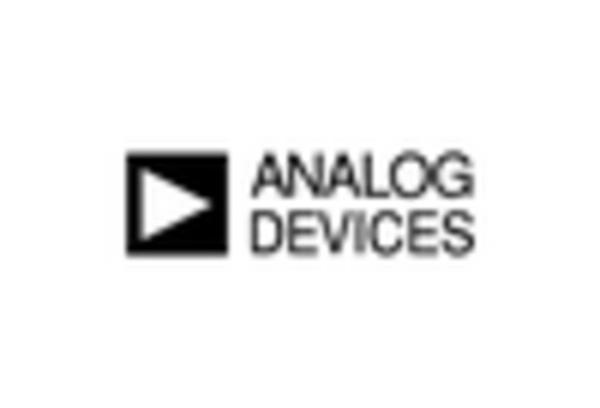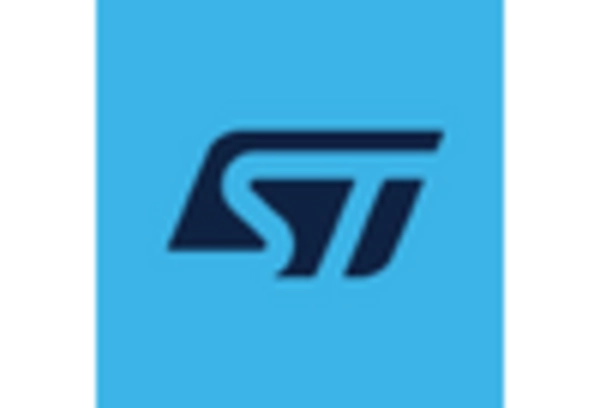Growth of Renewable Energy Solutions
the analog semiconductor market in Japan will benefit from the increasing focus on renewable energy solutions. As the country aims to reduce its carbon footprint and enhance energy efficiency, the adoption of solar and wind energy technologies is on the rise. In 2025, investments in renewable energy infrastructure are projected to reach $30 billion, creating a substantial demand for analog semiconductors used in power conversion and management systems. These components are vital for optimizing energy generation and distribution, thereby supporting Japan's energy transition goals. The integration of analog solutions in smart grid technologies further enhances the efficiency and reliability of energy systems, indicating a promising outlook for the analog semiconductor market in the context of renewable energy.
Advancements in Automotive Electronics
the automotive sector in Japan plays a crucial role in the analog semiconductor market, particularly with ongoing advancements in automotive electronics. As vehicles become increasingly equipped with sophisticated electronic systems, the demand for analog semiconductors rises. In 2025, the automotive electronics market in Japan is expected to exceed $20 billion, with analog components essential for functions such as power management, sensor interfacing, and signal processing. The shift towards electric vehicles (EVs) and hybrid models further amplifies this demand, as these vehicles require specialized analog solutions for battery management and energy efficiency. Consequently, the analog semiconductor market is poised for substantial growth, driven by the automotive industry's transition towards more electrified and connected vehicles.
Rising Demand for Consumer Electronics
The analog semiconductor market in Japan experiences a notable surge in demand driven by the increasing consumption of consumer electronics. With the proliferation of smartphones, tablets, and wearable devices, the need for efficient analog components has escalated. In 2025, the market for consumer electronics in Japan is projected to reach approximately $50 billion, with analog semiconductors playing a crucial role in enhancing device performance and energy efficiency. This trend indicates a robust growth trajectory for the analog semiconductor market, as manufacturers strive to meet consumer expectations for high-quality audio, video, and connectivity features. Furthermore, the integration of advanced technologies such as AI and machine learning in consumer devices necessitates sophisticated analog solutions, thereby further propelling the market's expansion.
Increased Focus on Industrial Automation
the analog semiconductor market in Japan is expected to grow due to the heightened focus on industrial automation. As manufacturers seek to enhance productivity and efficiency, the adoption of automation technologies is accelerating. In 2025, the industrial automation market is projected to reach $25 billion, with analog semiconductors playing a critical role in control systems, sensors, and actuators. These components are essential for ensuring precise control and monitoring in automated processes, thereby driving operational excellence. The integration of analog solutions in robotics and smart manufacturing further underscores their importance in the evolving industrial landscape. Consequently, the analog semiconductor market is likely to experience robust growth as industries embrace automation to remain competitive.
Telecommunications Infrastructure Expansion
the expansion of telecommunications infrastructure in Japan plays a vital role in the analog semiconductor market. With the rollout of 5G networks, there is an increasing need for advanced analog components that facilitate high-speed data transmission and connectivity. In 2025, the telecommunications sector is expected to invest over $15 billion in infrastructure upgrades, which will likely drive demand for analog semiconductors used in base stations, signal processing, and RF applications. This expansion not only enhances communication capabilities but also supports the growth of IoT applications, further solidifying the role of analog semiconductors in modern telecommunications. As the market evolves, the need for innovative analog solutions will be paramount to meet the demands of a connected society.












